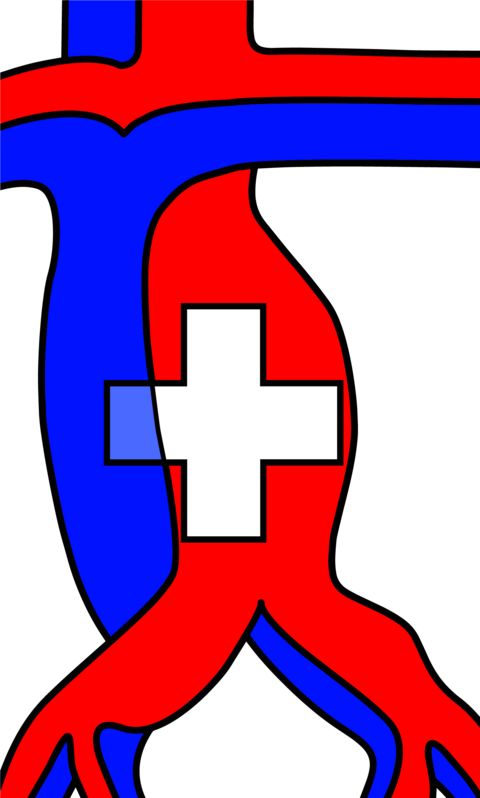Why did I choose to become a pediatric surgeon? Before writing this article I asked several colleagues why they chose to be pediatric surgeons. The answers were rather uniform: working with children is highly rewarding, we have passion for surgery and the broad spectrum of cases is challenging and for sure never becomes boring routine work.
But when younger residents ask me if they really should enter the long and winding path of a pediatric surgery career, I also point out the downsides like a high work load with many on-call duties, limited job alternatives and less salary compared to other surgical fields.
Pediatric Surgery can probably be regarded as the last true general surgery since it is not a subscpeciality by organ or body region but more like surgery of a period of life. It comprises surgical diseases of fetus, newborns, infants, children and adolescents altogether. This broad spectrum of diseases and broad range of cases, many of them extremely rare, make the career path of a pediatric surgeon so challenging and demanding, and exciting.
It takes a significant commitment of time, energy and dedication to education and training to become a pediatric surgeon. However, we are also facing the problem of changing working conditions, less index cases, higher need for subspecialisation and implementing new technologies and surgical techniques. To maintain a high quality of surgical education, we need to renew our teaching methods, e.g. establishing skills labs, training on laparoscopy trainers and simulators, offering rotations to different departments, implementing fellowships and most importantly: adapting our curriculum.
As pediatric surgeons we have a profound impact on young lives and their quality of life. When operating babies with congenital malformations the surgery is meant to have an effect for the entire lifetime.
The survival rate for a newborn with esophageal atresia was 0% until the first successful repair was made in 1941. The evolution of the pediatric surgical techniques and strategies, in line with the development of neonatal anesthesia and critical care increased the survival of neonates with respective congenital malformations to a rate of 95 % today.
A newborn with intestinal atresia had a 30% survival rate in the early 50s. Nowadays, 95% of these children survive, also thanks to the invention of long-term parenteral nutrition that can even be performed at home.
Congenital diaphragmatic hernia survival has increased during the 20th century from 15% to 70% with the advent of modern ventilation techniques, treatment options for pulmonary hypertension, and ECMO(1).
Taking care of our young patients requires teamwork capabilities, not only with pediatric anasthesiologists, but also with neonatologists, pediatricians in the intensive care unit and in the emergency room, nutritionists, physiotherapists, psychologists and social care worker, just to name a few. During years of follow-up we often establish long-term relationships with the patients and their families guiding and supporting them through challenging times.
Even though our work load is high, pediatric surgeons reported the highest rate of work satisfaction among surgical specialities in a study by Balch et al.(2). Also, the proportion of women is higher than in other surgical disciplines. 32% of the ordinary active members of the Swiss Society of Pediatric Surgery are women, but still, women in leading positions are scarce. The difference in career development between men and women has been widely discussed and often it refers to the so called glass ceiling phenomenon for women. In a German survey among pediatric surgeons, 41% of the women and 9% of the men reported to work part-time, but the desire to work part-time in the future was indicated by 61% of the women and 34% of the men(3).
These conflicting needs - the compatibility of work and private life or family on one side, and the maintenance of a high standard of surgical education and skills on the other side - is the present challenge that will define the future of our surgical field.
To finish the question “Why to become a pediatric surgeon” it is may be best to quote Dr. Haller from the John Hopkins University. He concluded in his article “Why pediatric surgery?”. that the answer to him was clear: “Because children are not little adults. They have some unique problems that require very special surgical management. They also do not vote, so we have another critical role - to be their advocates for the best surgical care in the world.”(1)
- Haller, J.A., Jr., Why pediatric surgery? A personal journey through the first 50 years. Ann Surg, 2003. 237(5): p. 597-606.
- Balch, C.M., et al., Distress and career satisfaction among 14 surgical specialties, comparing academic and private practice settings. Ann Surg, 2011. 254(4): p. 558-68.
- Schmedding, A. and M. Sinnig, The Future of Pediatric Surgery-Women and Part Time? Eur J Pediatr Surg, 2022. 32(5): p. 452-459.








